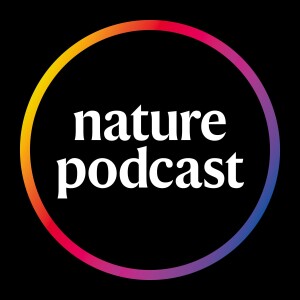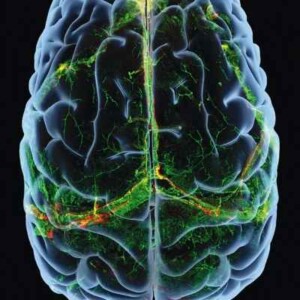How the giraffe got its long neck is a longstanding question in science. One possibility is that giraffes evolved longer necks for sexual competition, with males engaging in violent neck-swinging fights. Now, a team have described fossils of an ancient giraffoid species with a thick headpiece adapted for fighting, which could add weight to this hypothesis.
Nature News: How the giraffe got its neck: ‘unicorn’ fossil could shed light on puzzle
05:18 A wave of resignations signals discontent in academia
Around the world, the ‘great resignation’ has seen huge numbers of workers re-evaluating their careers and lifestyles and choosing to leave their jobs following the pandemic. Academia is no exception, with many scientists deciding to leave the sector in the face of increased workloads, systemic biases and pressure to publish.
Nature Careers: Has the ‘great resignation’ hit academia?
10:34 An emergency fix gets MAVEN back on track
Earlier this year, NASA’s MAVEN spacecraft, which has been orbiting Mars since 2014, developed some serious equipment issues that prevented it from keeping its correct orientation in space. In a race against time, a team on Earth fixed the problem by developing a system that allowed the spacecraft to navigate by the stars.
Space.com: NASA's Mars MAVEN spacecraft spent 3 months on the brink of disaster
14:28 The Perseverance rovers continues its rock collection
NASA’s Perseverance rover has arrived at an ancient Martian river delta where it will spend the next few months exploring, while scientists assess where to drill and extract rock samples. It’s thought that rocks from this region have the best chance of containing evidence of Martian life, and plans are being developed to return them to Earth in the future.
Nature News: NASA’s Perseverance rover begins key search for life on Mars
Subscribe to Nature Briefing, an unmissable daily round-up of science news, opinion and analysis free in your inbox every weekday.
See acast.com/privacy for privacy and opt-out information.
More Episodes
Brain-reading implants turn thoughts into speech
 2023-08-23
2023-08-23
Fruit flies' ability to sense magnetic fields thrown into doubt
 2023-08-16
2023-08-16
Racism in health: the roots of the US Black maternal mortality crisis
 2023-08-10
2023-08-10
How welcome are refugees in Europe? A giant study has some answers
 2023-08-09
2023-08-09
How to get more women in science, with Athene Donald
 2023-08-02
2023-08-02
Audio long read: Lab mice go wild — making experiments more natural in order to decode the brain
 2023-07-31
2023-07-31
Facebook ‘echo chamber’ has little impact on polarized views, according to study
 2023-07-27
2023-07-27
AI-enhanced night-vision lets users see in the dark
 2023-07-26
2023-07-26
Disrupting snail food-chain curbs parasitic disease in Senegal
 2023-07-19
2023-07-19
ChatGPT can write a paper in an hour — but there are downsides
 2023-07-12
2023-07-12
Even a 'minimal cell' can grow stronger, thanks to evolution
 2023-07-05
2023-07-05
Audio long read: ‘Almost magical’ — chemists can now move single atoms in and out of a molecule’s core
 2023-06-30
2023-06-30
Do octopuses dream? Neural activity resembles human sleep stages
 2023-06-28
2023-06-28
Why bladder cancer cells that shed their Y chromosome become more aggressive
 2023-06-21
2023-06-21
What IBM's result means for quantum computing
 2023-06-14
2023-06-14
A brain circuit for infanticide, in mice
 2023-06-07
2023-06-07
AI identifies gene interactions to speed up search for treatment targets
 2023-05-31
2023-05-31
Audio long read: Can giant surveys of scientists fight misinformation on COVID, climate change and more?
 2023-05-26
2023-05-26
‘Tree islands’ give oil-palm plantation a biodiversity boost
 2023-05-24
2023-05-24
JWST shows an ancient galaxy in stunning spectroscopic detail
 2023-05-17
2023-05-17
Create your
podcast in
minutes
- Full-featured podcast site
- Unlimited storage and bandwidth
- Comprehensive podcast stats
- Distribute to Apple Podcasts, Spotify, and more
- Make money with your podcast
It is Free
- Privacy Policy
- Cookie Policy
- Terms of Use
- Consent Preferences
- Copyright © 2015-2024 Podbean.com



 iOS
iOS Android
Android


